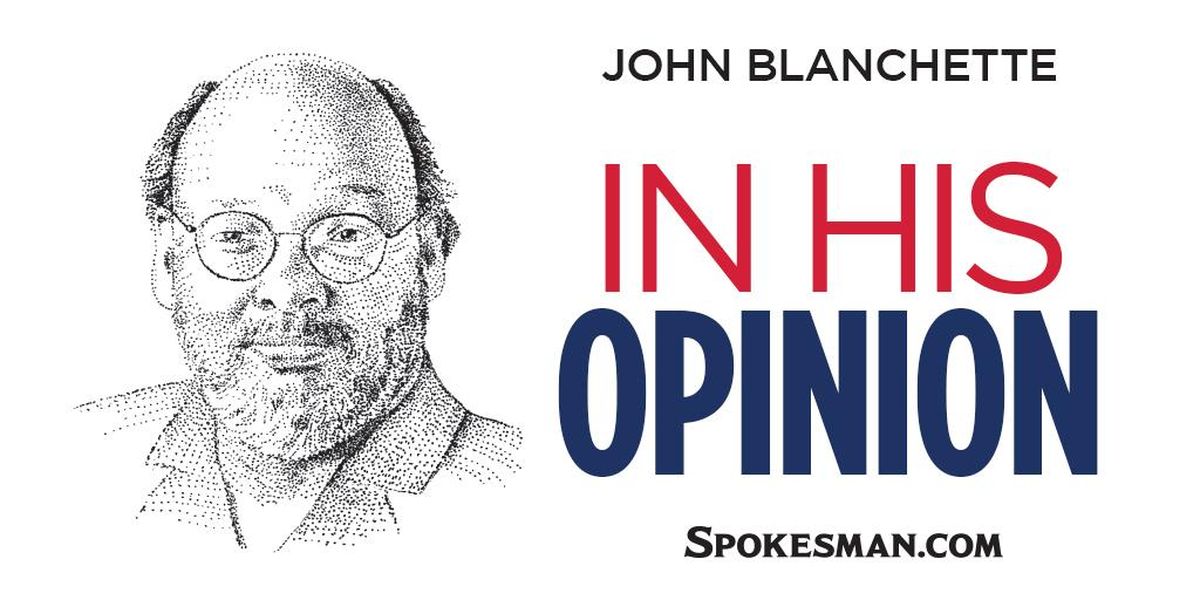John Blanchette: Time to read up on your Kennel Club history

Whatever grand aspirations get attached to the authoring of history books, they all start with the same premise.
Correcting memories that are faulty, or worse.
Too much history, we know, is like a party round of the Telephone Game after uncorking the fifth bottle of wine. The original story almost never makes it to its destination.
An example: When the Gonzaga Bulldogs reached the Final Four in 2017, one-time Zags student manager Aaron Hill had to do his watching from Italy, where he’d made a commitment to teach that week (reminder to GU grads: Keep March wide open in the future). As it happened, a colleague there was from the University of South Carolina, the Zags’ semifinal opponent. He dropped his basketball bona fides by expressing relief that the game wasn’t being played in Spokane in front of the hostiles in the Kennel Club.
Which owes its raucous and intimidating nature to, the colleague confided, having been birthed “by the Gonzaga rugby team.”
Oh, well. At least he didn’t pronounce it “Gon-zaw-ga rawg-by.”
Hill began thinking that it was time to set the Kennel Club record straight. Back in America, Mike Shields had been nursing a similar notion. That they didn’t know one another and still got together was one of those Gonzaga things, not unlike the KC itself.
And now “We Are G.U. – The Origins, History and Impact of Gonzaga University’s Kennel Club” is a real live book, getting its official launch Saturday at Kraziness in the Kennel, the basketball team’s annual sneak preview and made-for-the-Kennel-Club event.
A book on the Kennel Club? Even the authors didn’t start out thinking that big.
“I think Aaron said it a couple of times that maybe it could be pamphlet that gets handed out to students, or something on the Kennel Club website that told the origins and history,” Shields said. “The more we got into it, we realized there was more to the story than we intended to tell.”
Warts and all.
Not that the KC has been simply about hell-raising. Among Hill and Shields’ favorite discoveries were stories of sharing: the sizable gift the club made to Ronny Turiaf’s medical fund when the Zags center faced heart surgery, and even the kidney one former KC president (Jason Boyd) donated to another (Steve Brezniak).
But it’s true that Gonzaga’s student mob has had a complicated evolution, from undergraduate lark to raison d’party to primal force to administrative worry to leashed housepets. In telling the story, the authors wanted to highlight the origins that were just as humble as those of the program the KC supports – and came away more empathetic to recent editions tamed by campus overseers.
Now, the KC didn’t invent student support. A group in the ’70s called themselves “The Snake Pit, and a few years later, Mike Griffin unleashed Captain Zag – replete with winged ballcap, tights, cape and clunky choreography.
But Shields was there in 1984 for the formal launch of the Kennel Club – the name suggested by his friend, Joe Roberts, and the endeavor godfathered by former coach Dan Fitzgerald. The very timing was instructive.
“I think a lot of people believe this didn’t start until the team started making NCAA runs,” said Shields, who now works in corporate partnerships for Goodwill on the west side. “The Kennel Club was formed when Gonzaga basketball was on the periphery. We were like south Alaska.”
And they started small – Shields and some friends and a healthy dose of GU’s baseball (not rugby) players, who brought a dugout bench jockey’s sensibility. Hence the human spell-out “TOUPEE” for Loyola Marymount coach Ed Goorjian at a timeout, and the clubber dressed in prison stripes to greet Oregon State’s Brian Brundage, who’d been convicted of robbery.
“I can’t imagine them being able to do that today,” admitted Hill, who now teaches management at the University of Florida.
He had a front-row seat to that turn early in the early 2000s. Administrators had long blanched at some of the KC antics and language. There was also a rather loose accounting of the ever-mushrooming membership and shirt-sponsorship funds, possibly to the extent that someone’s tuition was getting paid. Hill was made one of two advisers to the KC, and the group fell under school supervision.
They still make it hard on visiting teams. The clubbers remain loud, colorful and animated – and loved by the players, though in the book former Zags guard Derek Raivio was quoted that he misses “the lawlessness of the Kennel Club of my era.”
“The kids today feel stuck in the middle,” Hill noted. “They get warnings about going too far, and then pushback from the old guard for not going far enough. They should be able to just have fun and enjoy the games.”
Fact is, the history of the Kennel Club is that they made the games more fun. And at their best, still can.